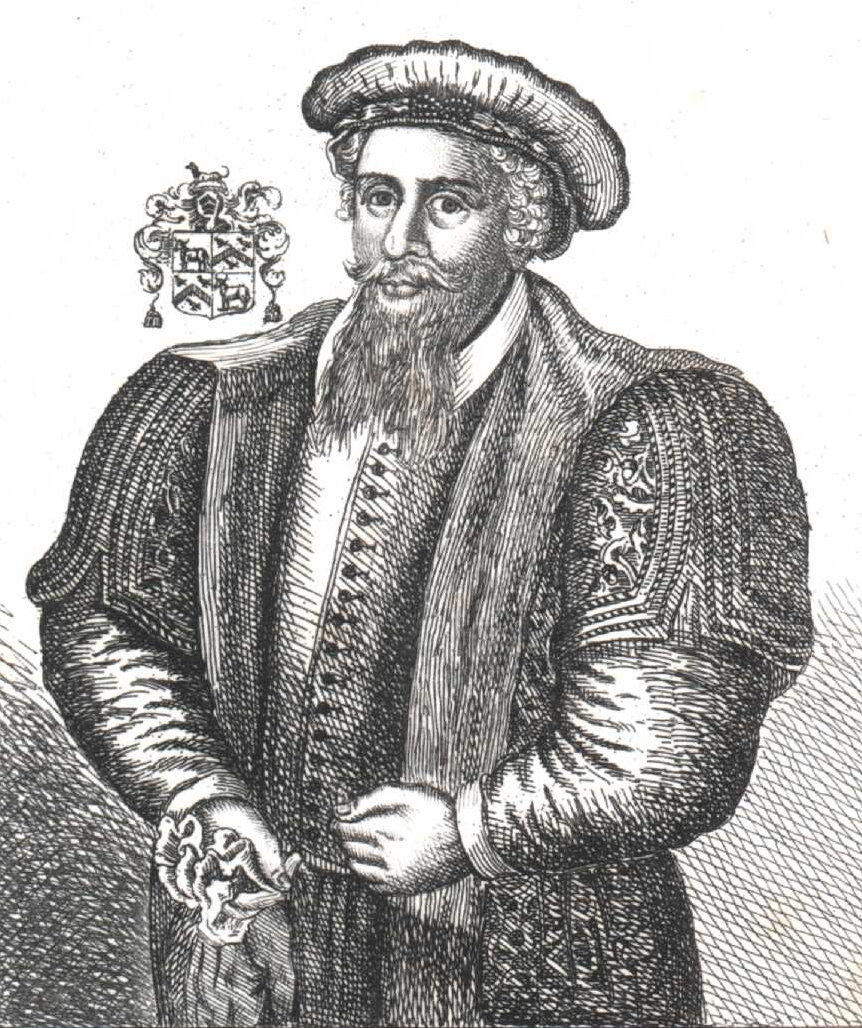Mark Ridley (physician) on:
[Wikipedia]
[Google]
[Amazon]
 Dr Mark Ridley (1560 – c. 1624) was an English physician and lexicographer, born in Stretham,
Dr Mark Ridley (1560 – c. 1624) was an English physician and lexicographer, born in Stretham,
Royal College of Physicians page
*Stephen Pumfrey, ''Latitude and the Magnetic Earth'' (Icon Books, 2002). {{DEFAULTSORT:Ridley, Mark 16th-century English medical doctors 17th-century English medical doctors 16th-century English writers 16th-century male writers 1560 births 1624 deaths People of the Elizabethan era 16th-century translators English translators Translators to Russian 17th-century translators 17th-century English writers 17th-century English male writers People from Stretham Expatriates of the Kingdom of England in the Tsardom of Russia
 Dr Mark Ridley (1560 – c. 1624) was an English physician and lexicographer, born in Stretham,
Dr Mark Ridley (1560 – c. 1624) was an English physician and lexicographer, born in Stretham, Cambridgeshire
Cambridgeshire (abbreviated Cambs.) is a county in the East of England, bordering Lincolnshire to the north, Norfolk to the north-east, Suffolk to the east, Essex and Hertfordshire to the south, and Bedfordshire and Northamptonshire to t ...
, to Lancelot Ridley. He became physician to the English merchants in Russia
Russia (, , ), or the Russian Federation, is a transcontinental country spanning Eastern Europe and Northern Asia. It is the largest country in the world, with its internationally recognised territory covering , and encompassing one-ei ...
, and then personal physician to the Tsar of Russia
This is a list of all reigning monarchs in the history of Russia. It includes the princes of medieval Rus′ state (both centralised, known as Kievan Rus′ and feudal, when the political center moved northeast to Vladimir and finally to Mos ...
.Lesley B. Cormack, ''Charting an Empire: Geography at the English Universities, 1580–1620'' (1997), p. 123.
Ridley's Russian dictionary
While living in Russia between 1594 and 1599, he compiled two manuscript dictionaries of Russian: a Russian-English dictionary of 7,203 entries entitled and an English-Russian dictionary of 8,113 entries entitled . The former includes a short grammar of Russian on the first eight folios. Both dictionaries are now held at theBodleian Library
The Bodleian Library () is the main research library of the University of Oxford, and is one of the oldest libraries in Europe. It derives its name from its founder, Sir Thomas Bodley. With over 13 million printed items, it is the sec ...
at the University of Oxford
, mottoeng = The Lord is my light
, established =
, endowment = £6.1 billion (including colleges) (2019)
, budget = £2.145 billion (2019–20)
, chancellor ...
(MSS Laud misc. 47a and 47b). After his return from Russia he also wrote two books on magnetism
Magnetism is the class of physical attributes that are mediated by a magnetic field, which refers to the capacity to induce attractive and repulsive phenomena in other entities. Electric currents and the magnetic moments of elementary particles ...
.
The dictionary's prime significance is in recording the spoken Russian language of that era: the written language differed considerably in its vocabulary and grammar under the strong literary influence of the Orthodox church texts. So lexica compiled by foreign business visitors to Russia reflected the actual Russian language use that they had encountered through daily interaction. Whereas study of the written tradition has a multitude of preserved texts available, study of the spoken language by foreigners were not influenced by local stylistic and other constraints.
This thesis was applied in the works of Prof. B. A. Larin (1937, 1948, 1959) and others. The manuscript of the Ridley dictionary was originally reviewed by Simmons and Unbegaun (1951, 1962), Unbegaun (1963) from Oxford University, and later studied by a team from Kazan State University in Russia (Galiullin and Zagidullin, 1996, 1997). The manuscript was published in 1996 as ''A Dictionarie of the Vulgar Russe Tonge: attributed to Mark Ridley / edited from the late-sixteenth-century manuscripts and with an introduction by Gerald Stone'' by Bohlau Verlag, thanks to the editorial work of Gerald Stone.
The Kazan research team in 1994–2000 conducted extensive comparative analysis of the dictionary materials in relation to the existing dictionaries of Russian language of the 16th century. This work awaits publication. Their studies have confirmed the historical value of the dictionary in several aspects. The correspondence of most of the material to existing records points to the reliability of Ridley's linguistic observations. It has permitted significant chronological corrections and expansion of the semantics of particular words when there were discrepancies with the major Russian historical dictionaries. Mark Ridley's dictionary included a sizeable number of words or phrases never recorded before (2249 entries out of total 6975).
Other studies of the Ridley dictionary include those of Konnova (2000) on his medical terminology.
Magnetics
Whilst Ridley's Russian dictionaries are more original, he is best known as an innovative follower of Dr William Gilbert (1544–1603) and the magnetic science that Gilbert published in his '' De Magnete'' of 1600. Until Gilbert's death in 1603 Ridley had lodged with him in Wingfield House, London. In 1613 Ridley published his ''Magneticall Bodies and Motions'', the first printed English work to promote Gilbert's ideas. Ridley was attacked by the conservative Revd William Barlow for advancing Gilbert's Copernican astronomy, and in Barlow's opinion, for plagiarizing his own version in English of Gilbert's magnetic science.Notes
External links
Royal College of Physicians page
*Stephen Pumfrey, ''Latitude and the Magnetic Earth'' (Icon Books, 2002). {{DEFAULTSORT:Ridley, Mark 16th-century English medical doctors 17th-century English medical doctors 16th-century English writers 16th-century male writers 1560 births 1624 deaths People of the Elizabethan era 16th-century translators English translators Translators to Russian 17th-century translators 17th-century English writers 17th-century English male writers People from Stretham Expatriates of the Kingdom of England in the Tsardom of Russia